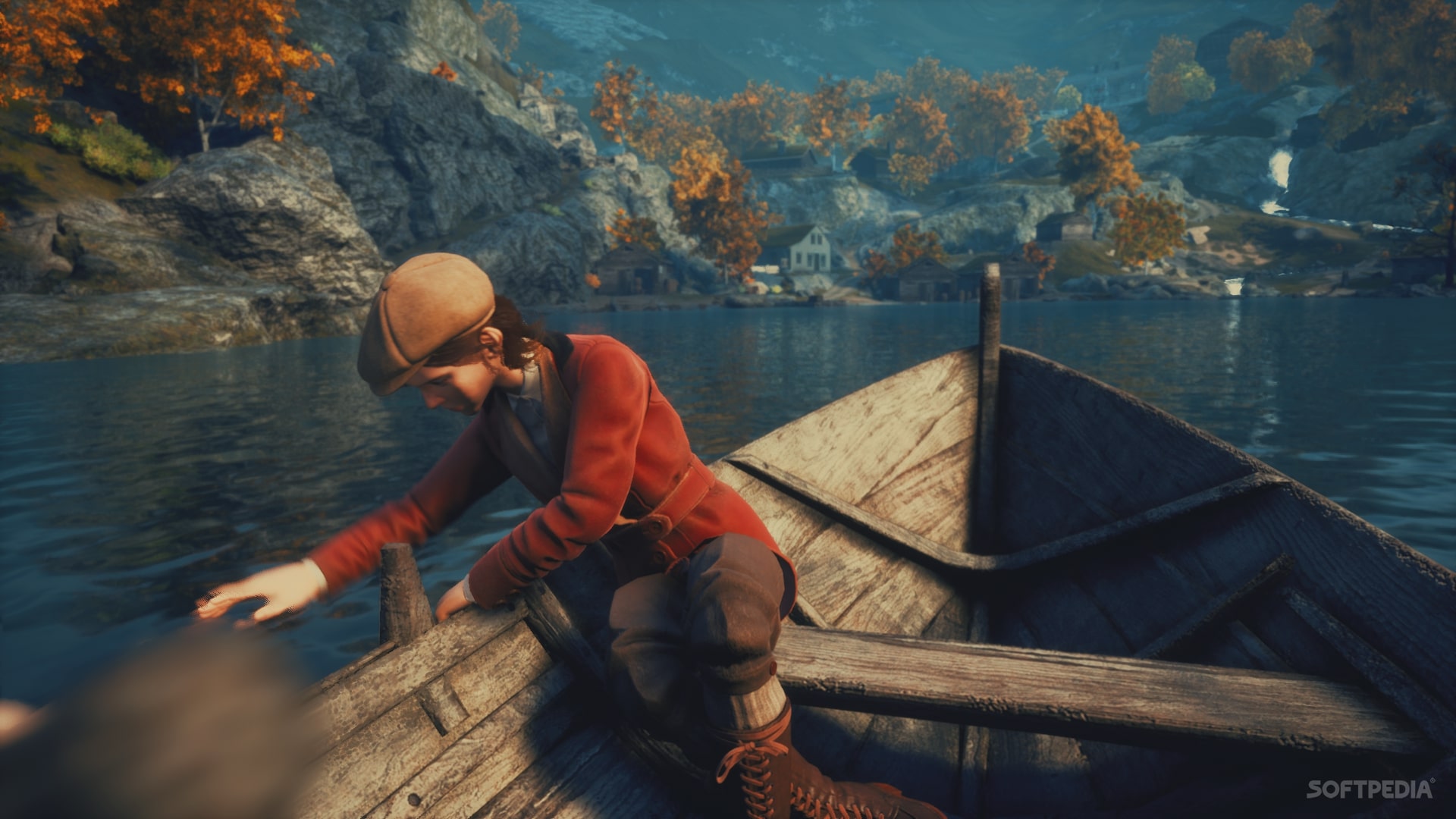


The rather frail and easily tired Edward will frequently rouse from his slumber at the beginning of chapters to find Lissie missing or away investigating something, so players have a “Call Out” option to try to find her, which uses something akin to echolocation to follow the shape of her voice (a pulsing circle much like an audio wave) to her position.

Over this time, Edward and Lissie delve further into the mysteries of Graavik by exploring new areas of the Fretlands’ house and the village surroundings. Fortunately, voicing Edward and Lissie, respectively, actors Nicholas Boulton and Skye Bennett do a good job of bringing to life their ongoing dialogue and making the relationship between the pair feel believable, a very necessary feat considering how much of the story rests on their telling of it.ĭraugen is split up into six chapters, with each chapter representing one day. Unfortunately, gabbing with Lissie is a key part of the experience, so there’s not much peace and quiet to be had. It’s frankly a bit of a relief in the few scenes when she says “pip pip” and Edward can have a breather for a while. Even so, the constant “old beans” and unnecessary “we’re sitting ducks out here, quack quack” chatter start to grate precisely a few minutes into the opening chapter, and no amount of explanation several hours later really helps exonerate that. She’s obviously supposed to exist to wind poor old beleaguered Edward up (and later story developments do explain the reasons behind this a little more). The game’s score, composed by Simon Poole, adds further creepiness to the tense parts, swelling suddenly as Edward makes another portentous discovery or using ominous percussion strikes to mark that something disturbing may be just around the corner.Īlas, your companion Lissie does her best to destroy this atmosphere with her chirpy and sarcastic nature. The sound effects in particular build a very troubling atmosphere – all creaking floorboards, banging doors, and ringing bells with nobody ringing them – which, alongside some quite disturbing plot points really help keep you on edge as you venture deeper into the secretive village and its surrounding environs. Edward spots things out of the corner of his eye that suddenly disappear, and there’s an ever-pervading sense that you’re not the only ones left here. So far so foreboding, and Draugen does an excellent job of ratcheting up the spookiness as you go about your journey. That, coupled with their boat suddenly disappearing from the dock, means there’s nothing for it but to investigate the unsettling town and uncover what happened to its inhabitants, and possibly Elizabeth along with them. Rather than a big Norwegian welcome (Velkommen?) though, the pair disembark to find the village completely and rather eerily empty. From the last letter he received from his dear sis, Edward believes that Elizabeth is somewhere to be found in the quiet, rural Norwegian village of Graavik, and is driven to travel there from Massachusetts, meet the mysterious Fretland family who live there, and find out why he hasn’t heard from his sibling since. The plot joins Americans (no doubt of high class backgrounds hence their propensity for Britishisms) Edward Harden and his younger, annoying companion Lissie on their quest to find Edward’s sister Elizabeth (or Betty, as she is also confusingly called). But despite a surprising mid-game plot reveal and some genuinely creepy atmosphere, the upper class British slang is just too grating and the story eventually too overwhelming for even this old bean to fully delight in. Golly, there’s some frightfully spiffing twists and turns in Draugen when it isn’t going overboard with the old-fashioned dialogue, what what! The first-person “fjord noir” (an unusual sub-genre which I can only hope encourages future anomalies like “car park-erotic drama”) from the studio behind Dreamfall Chapters is set in picturesque 1920s Norway and draws you into an intriguingly busy narrative filled with cursed mines, Nordic mythology, family feuds and potential child murder.


 0 kommentar(er)
0 kommentar(er)
